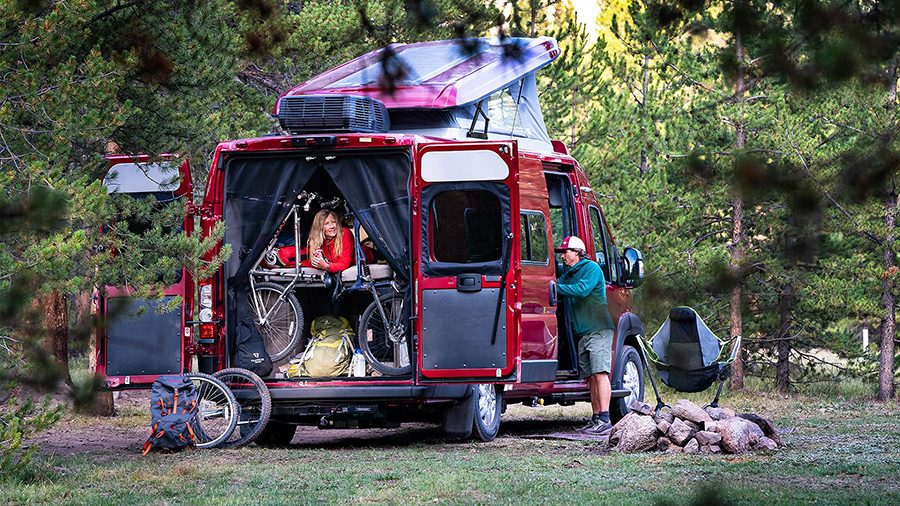Inflation-adjusted GDP for the outdoor recreation economy increased 18.9 percent in 2021, compared with a 5.9 percent increase for the overall U.S. economy, reflecting a rebound in outdoor recreation after the decrease of 21.6 percent in 2020, according to a recent analysis released by the U.S. Bureau of Economic Analysis (BEA).
In 2021, the outdoor recreation economy accounted for 1.9 percent, or $454 billion, of the current dollar U.S. gross domestic product, according to BEA. At the state level, value added for outdoor recreation, as a share of state GDP, ranged from 4.8 percent in Hawaii to 1.3 percent in New York and Connecticut. The share was 0.9 percent in the District of Columbia.
Gross economic output for the outdoor recreation industry totaled $862 billion in 2021. Outdoor recreation compensation increased 16.2 percent, and employment increased 13.1 percent. The outdoor industry supports 4.5 million jobs.
Additional highlights for value added by activity for 2021 include:
- Boating/Fishing was the largest conventional activity in the U.S. at $27.3 billion in current-dollar value added and was the largest conventional activity in 27 states and the District of Columbia. The largest contributors were Florida ($4.0 billion), California ($2.3 billion) and Texas ($2.0 billion).
- RVing was the second-largest conventional activity in the U.S. at $25.1 billion in current-dollar value added and was the largest conventional activity in 15 states. The largest contributors were Indiana ($5.4 billion), Texas ($2.2 billion) and California ($2.0 billion).
- Hunting/Shooting/Trapping was the third-largest conventional activity in the U.S. at $10.8 billion in current-dollar value added and was the largest conventional activity in two states. The largest contributors were Texas ($1.2 billion), California ($763.8 million) and Georgia ($555.2 million).
- Snow activities in the U.S. was $5.2 billion in current-dollar value added and was the largest conventional activity in four states. The largest contributors were Colorado ($1.3 billion), Utah ($519.4 million) and California ($505.7 million).
According to a statement from the Outdoor Recreation Roundtable, this is the fifth consecutive year that BEA released government data the outdoor industry.
“We have seen record growth in camping and boating over the past couple of years, with millions of people enjoying RVs and boats to connect with family and friends, to relax and recharge and to experience nature,” said Michael Happe, President and CEO of Winnebago Industries. “The record economic impact in the BEA numbers demonstrates the collective power of our industry to help people discover and experience the tremendous benefits of the outdoor lifestyle.”
“The latest BEA numbers are a testament to the power of outdoor recreation, and we are thrilled to see our industry’s economic impact grow,” said Chris Metz, CEO, Vista Outdoor, Inc. “This data shows that people continued to venture into the outdoors for health, wellness and adventure in record numbers last year as businesses across the industry worked to expand participation and bring more people into the outdoors. The goal now: Build on that momentum. We will stay focused on increasing access to public lands, building more recreation infrastructure and growing participation across all outdoor activities.”
“This data solidifies what we have seen over our sixty-year history that there is intrinsic value in the outdoors,” said Toby O’Rourke, president and CEO, Kampgrounds of America, Inc. “Over 20 million new households started camping since 2020, with six in ten planning to continue. We are increasingly seeing camping and outdoor vacation becoming a preferred form of travel. The economic impact of camping and the greater outdoor industry underscores how critical natural spaces are to our communities. And, even more importantly, the outdoors remains vital for overall health and well-being and in fostering connection to others.”
“The continued strength of the outdoor economy is no surprise to the marine industry, where we continue to see incredible growth with new and younger customers taking to our brands each year,” said Chris Drees, president, Mercury Marine, the manufacturer of recreational marine propulsion engines. “We will continue to work closely with our partners in the outdoor recreational community to promote the benefits of being on the water.”
Photo courtesy Winnebago














